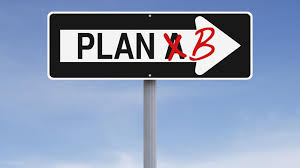 At CCG, we’re blessed to coach a lot of highly successful executives. These are the best of the best, so naturally sometimes the coach ends up learning a thing or two.
At CCG, we’re blessed to coach a lot of highly successful executives. These are the best of the best, so naturally sometimes the coach ends up learning a thing or two.
In a recent session, I was coaching an executive who is very successful in his industry. He has a long track record of accomplishments. He’s respected, and he’s valued as a mentor to others in his company because he’s willing to share his knowledge and experience. In short, he’s the real deal.
During one of our conversations, he started talking about what other career options he might want to pursue in his future. I was surprised (and even a little shocked) to learn that he was thinking about needing or wanting to do something else. Then I realized he wasn’t approaching this from a place of weakness or fear, he was simply exploring the possibility of what might come next.
Know What’s Next
He said that because of the rapid pace of change in the business world today, we should always know “what’s next” in case our current situation changes. It’s smart to keep our eyes open to other possibilities, he added.
He learned to do this early in his career after reading Brian Tracy’s A Treasury of Personal Achievement, which addresses the importance of having a “Plan B” in work and in life. By doing this throughout his long, successful career, the executive I coach has opened himself up to opportunities that he might not have recognized if he hadn’t adapted the “Plan B” mindset. Some of those opportunities were embraced; others were not. But being open to the possibilities of “what’s next” (and being willing to change) is part of why he’s so successful. This makes perfect sense.
Change is Inevitable
Most of us embark on a career when we are quite young—maybe too young to really know ourselves and our strengths and weaknesses. Also, we all change over the years; our abilities, our interests and our passions evolve.
Often people are promoted beyond the jobs that drew them to their chosen fields in the first place, and sometimes those early jobs are what they enjoy more. These folks might think to look for a Plan B within their organizations.
Finally, with record numbers of people—baby boomers in particular—looking at retirement but not yet ready to retire, a Plan B can turn into a very satisfying second act. These people are turning hobbies into jobs. They are going back to school to train for something entirely different. They are doing things they love.
James A. Yorke, a distinguished mathematician and really smart guy, put it this way: “The most successful people are those who are good at Plan B.”
I’ll agree with him and with author Brian Tracy and with that successful executive in my coaching program because I believe one of the most positive aspects of a Plan B mindset is that it frees you from being trapped doing something you don’t enjoy; it also can keep you from living in fear. Having a Plan B is all about opportunities. I associate that with life’s bright side right now and with hope for the future. I think it’s how you do what you do better.
Recent Comments